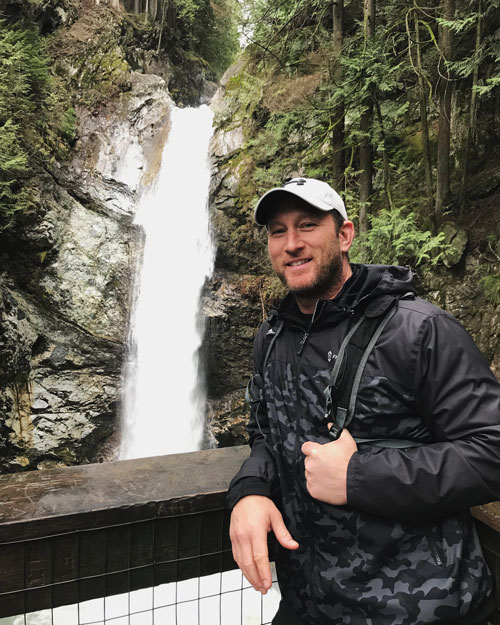
Mike's Story
Breaking down his days into manageable goals and task was a crucial step in Mike's recovery from depression and getting back on track.

Breaking down his days into manageable goals and task was a crucial step in Mike's recovery from depression and getting back on track.
"When I held myself completely accountable for my thoughts and actions, was when I knew that I could change directions to get out of depression"
About Mike:
I am an athletic trainer with a specialization in off-ice hockey development. For over 20 years, I’ve been helping people with their health and fitness, and for the last 10 years I’ve had the opportunity to impact the lives of young athletes. Inspiring young athletes to believe in their potential, helping them build confidence, and improving their athletic performance has been a very rewarding career. Mike recently started a private Facebook Group called Hero of the Day to support men.
The major turning point for me, after struggling for 20 years, was when I flat out accepted that most of the low experiences I had were my fault. I stopped blaming the outside world for things that I had control over. When I held myself completely accountable for my thoughts and actions, was when I knew that I could change directions to get out of depression. I could see more clearly that some of the things I was or wasn’t doing weren’t helping. That’s when I decided to make those changes in my life.
WHAT ARE SOME THINGS THAT REALLY HELPED?
The biggest thing that helped was to sit and write down all the things that I needed to stop doing, and make a list of things I should be doing. Setting goals and making a plan was the first place to start. I call them micro-goals, mini goals, like making my bed every morning, really helped to set the day.
I used meditation to help calm my mind and get into a state of being grateful for what I had and who I am. Most of all, I had to work on identifying the fears which were having a negative impact on my self-belief. Fear and worry about what other people thought about me, was the toughest to deal with.
I made a promise not to beat myself up if I fell off track. I allowed myself to make mistakes and be ok with that. As long as I got back on track. One thing at a time, one day at a time.
The best advice I could give anyone is to never give up and believe that there are answers, and there is help. Most of all, you have to write down things that are influencing your thoughts and behaviours negatively. Then make a list of things you know would help, and what you’d like to see change in your life. Last, have faith and belief that even when you’re down or under a dark cloud, it will pass and when it does you go to work on doing the things necessary to get out of depression.
– Mike Pickles, athletic trainer based in Surrey, BC, Canada. ![]()
![]()
Help us explore the complex connections between men's mental health and their romantic relationships by participating in the Men and Relationships Study. Your insights will contribute to a deeper understanding of how relationships impact well-being, helping to shape better mental health support for men.
Participants may enter a draw for one of four $100 prepaid Mastercards.
Take the survey today and be part of this important research.